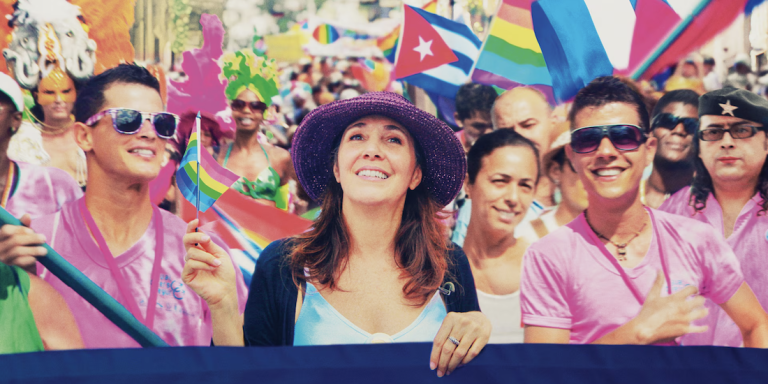
The future of Cuba lies not in its past revolutions, but in its capacity to evolve—and Mariela Castro Espín is leading that change.
New York, N.Y. — Mariela Castro Espín [Luce Index™ score: 77/100]., daughter of former Cuban President Raúl Castro and niece of revolutionary leader Fidel Castro, is not merely a political heir—she is a transformative force in Cuban society.
As the director of Cuba’s National Center for Sexual Education (CENESEX), she has become the country’s most visible advocate for LGBTQ+ rights, gender equality, and progressive social reform. In a nation often perceived as frozen in Cold War-era ideology, Mariela represents a new, evolving Cuba—one that is slowly but determinedly embracing change.

A Progressive Leader in a Changing Cuba
Her work has drawn international acclaim, positioning her as a bridge between Cuba’s socialist foundations and the demands of a modern, inclusive society. Yet, her journey has not been without controversy, both at home and abroad.
The Diplomacy of Distance: Restrictions and Realities
Twelve years ago, in a secluded Manhattan Japanese dining room, I witnessed firsthand the delicate dance of U.S.-Cuba relations. Mariela, then in New York for a United Nations conference, was confined by U.S. restrictions that barred her from traveling beyond a 25-mile radius. Cuban and American security personnel hovered nearby, a stark reminder of the lingering Cold War tensions.
Despite these constraints, Mariela engaged in open dialogue—a rarity given the decades of mistrust between the two nations. That evening, hosted by holistic healer Dr. Kazuko Hillyer Tatsumura, became a microcosm of what U.S.-Cuba relations could be: respectful, curious, and forward-looking.
Cuba’s Medical Legacy: From Revolution to Global Outreach

One of Cuba’s most remarkable achievements since the 1959 revolution has been its healthcare system.
Unlike many nations that prioritized military might, Fidel Castro invested in medicine, creating a robust network of doctors who now serve not only Cubans but also some of the world’s most vulnerable populations.
Mariela’s advocacy aligns with this legacy. While Cuba once faced criticism for its early AIDS policies—including the quarantine of HIV-positive individuals—she has worked to reframe the conversation around public health as a human right.
Today, Cuba is a leader in HIV prevention and treatment, even developing its own vaccines.
Identity, Openness, and Human Rights in Modern Cuba
Perhaps Mariela’s most significant impact has been in LGBTQ+ rights. Under her leadership, CENESEX has pushed for same-sex marriage, gender-affirming healthcare, and anti-discrimination laws—a radical shift in a traditionally machismo culture.
During our dinner, when I mentioned being openly gay and married to a Singaporean man, Mariela nodded knowingly. Her advocacy is personal; she has spoken openly about her father’s initial resistance to her work, only to later witness his evolution on LGBTQ+ issues.
Yet, challenges remain. While Cuba has made strides, activists still push for faster reforms, and Mariela herself navigates the complexities of being both a government insider and a reformers.
The Embargo and the American Dilemma
The U.S. embargo on Cuba, now in its sixth decade, remains a major barrier to progress. Ordinary Americans are still barred from traveling freely to the island, a policy that feels increasingly archaic.
Mariela’s presence in New York was a reminder of what could be possible with normalized relations. If Americans could engage directly with Cubans—beyond politics and propaganda—both nations might find common ground in shared values of education, healthcare, and human rights.
Looking Ahead: Hope for Change
Mariela Castro is more than a Castro—she is a symbol of Cuba’s potential. Her work proves that even within a socialist framework, progress is possible. As Cuba slowly opens to the world, figures like Mariela will be crucial in shaping its future.
The question now is whether the U.S. will meet Cuba halfway. If that Manhattan dinner was any indication, the real diplomacy happens not in official summits, but in quiet conversations between people willing to listen.
Perhaps, one day soon, I’ll be able to fly directly from the U.S. to visit Mariela in Havana—not as a journalist or an outsider, but as a guest in a Cuba that is finally free to define itself.
Is Raúl Castro’s Daughter Mariela the Face of Modern Cuba? (July 2, 2025)